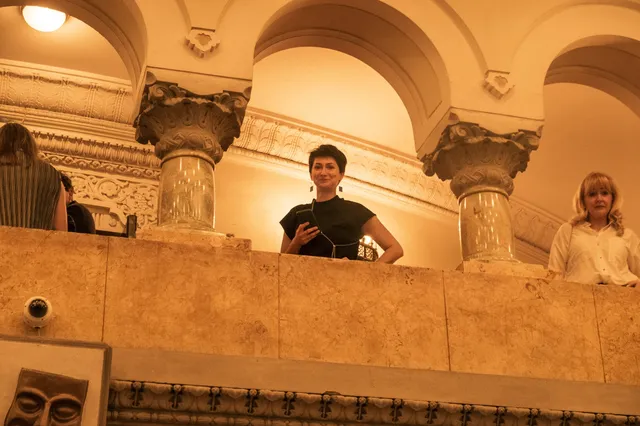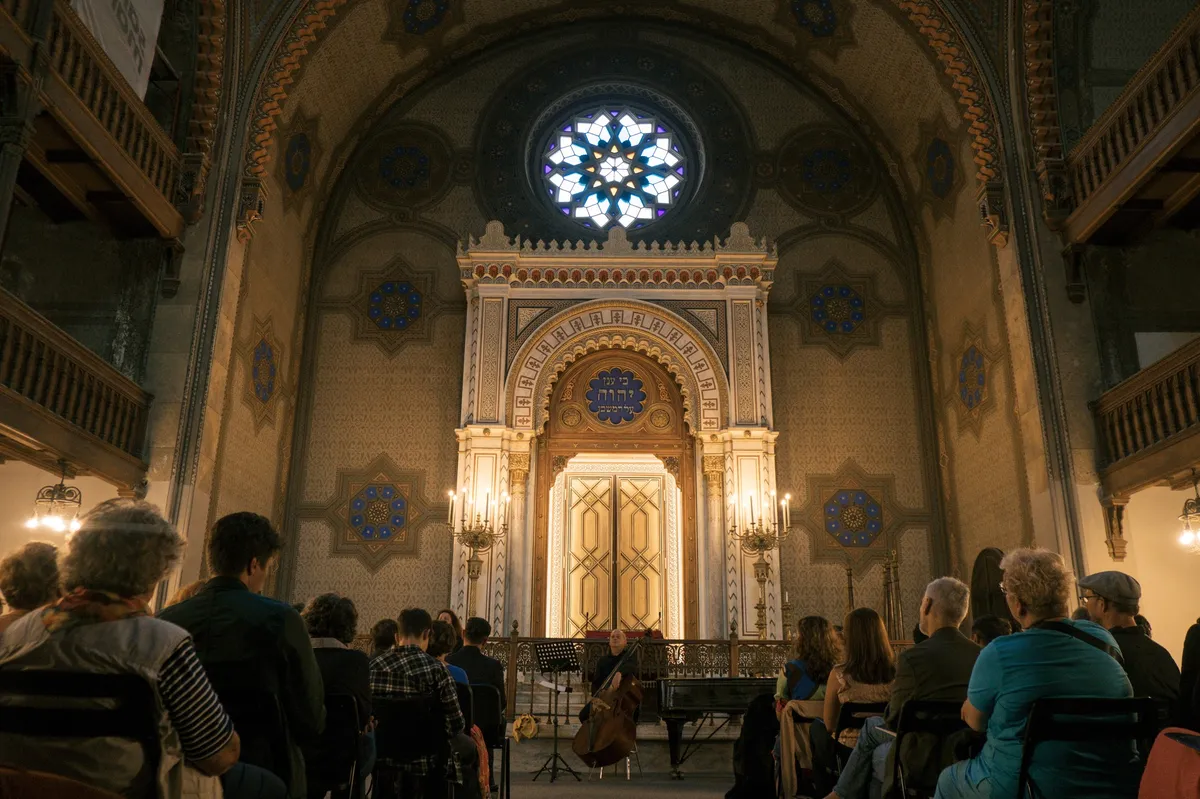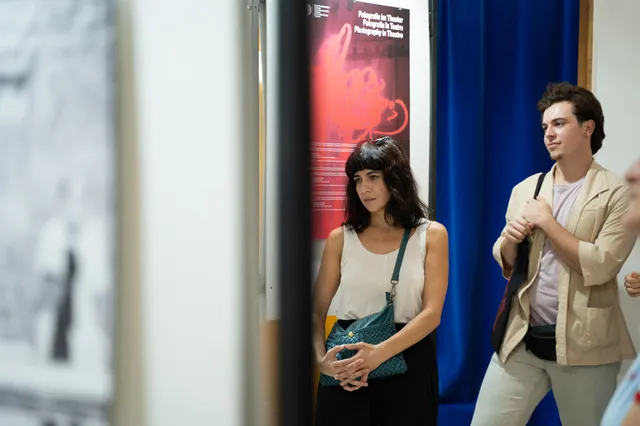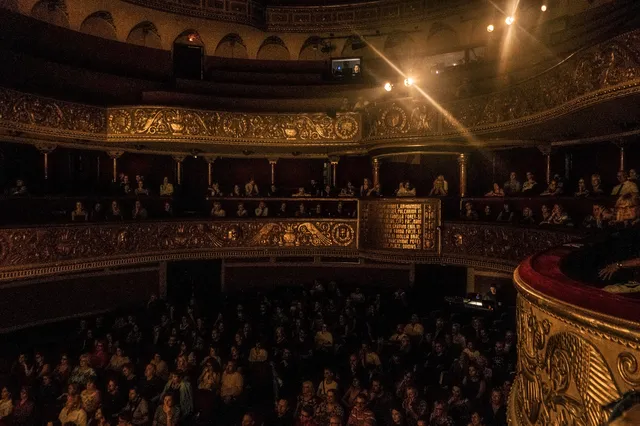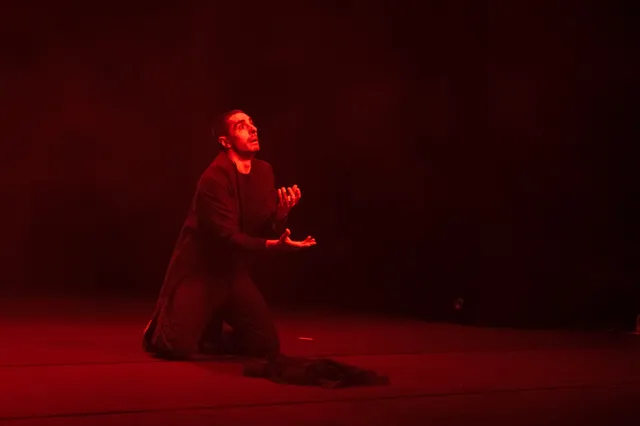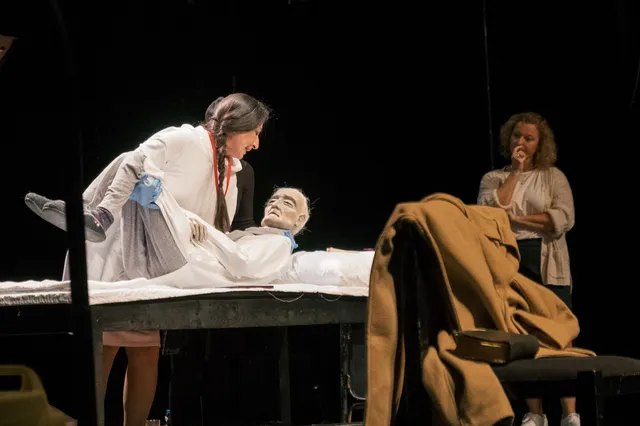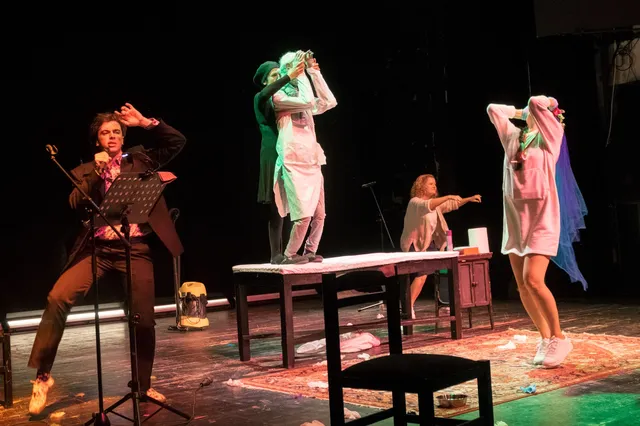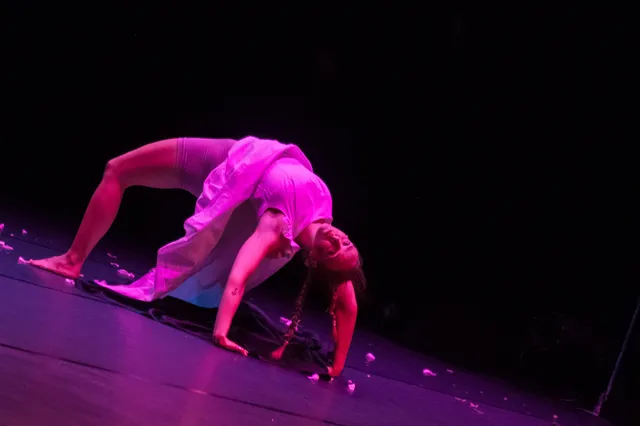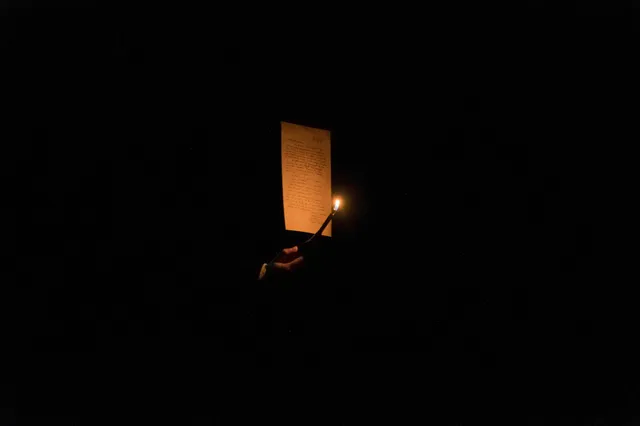Chronicle by Elena
Jebelean
The reading-performance
Sidy Thal – a schtikl from the
Stronghold Synagogue took us into a past that we must keep remembering, because
memory works as a reflector that warns of the possibility of not recognizing
the alarm signs in time. All the cons,
as well as pros, need to be
rigorously and critically examined. How could the world be blinded by
ideologies today? Lack of civilization, lack of culture, and ignorance coexist
under the same sky with their opposites. New bombs are absurdly exploding near
us, the exodus of migrants amplifies interracial tensions in Europe. The world
we live in is far from wisdom. It would be good if, when the muses speak, the
clanging of weapons ceased, and the discovery of that saying that we're all people would reconcile the
various animosities.
Thomas Perle is the one
who brings before us, through this co-production of the German State Theatre in
Timișoara with the Jewish State Theatre in Bucharest, a tragic event in the
history of interwar Timișoara. This attack is remarkably evoked by Alexandru
Potcoavă in Viața și întoarcerea unui
Halle (The Life and Return of a Halle) (2019), a novel that already is
present in our cultural consciousness. Thomas Perle updates the facts, nuances
them from several dramatic voices. The show performed by the Chernivtsi artist
Sidy Tahl on November 26, 1938, turned from a reason for delight into an
occasion for kaddish and commemoration. Two artisanal grenades exploded in the
hall of the Timișoara Communal Theatre, targeting the audience, mainly made up
of Jews. The artist lived until 1983, she was not the target. The spectators
were targeted, as in an echo of Nazi anti-Semitism, which had already
materialized in Germany through the desecration of synagogues and the
mistreatment of Jews. The Timișoara attack was planned and carried out by
members of the Iron Guard. Four people died, about 70 were injured. For the
inhabitants of Timișoara of any ethnicity, the event shattered the confidence
in normality, in respecting otherness, in the peaceful and harmonious life that
was characteristic of the city.
And now, curtain up!
The father shows his eight-year-old son the theatre where this once happened.
The son listens attentively, but in front of the white gates in the middle of
the city, he does not yet seem to understand the significance of the situations
described. Then the jump in time takes us to a couple heading to the theatre
where the show in question will take place. They are future victims. The
gentleman is a lawyer, but his licence is already suspended for reasons of
race. Worried about the course of the world, he would back down, predicts the
danger, but the wife insists, being determined to make him enjoy the chance to
listen to a singer as appreciated as the wonderful Sidy. A diary sequence is
then read, The Israelite Courier – tough
times can be glimpsed with increasing concern in world events. The word is
taken over by the usher, a conscientious young man who first enjoys the
elegance and good mood of the spectators he leads to their places on the
balcony, which is the area assigned to him for that evening. Looking at the
people, he exclaims: How beautiful the
world is! He intuits the barbarity of the man smelling of plum brandy, but
he still leads him to his place, as he should. For in this world that still
seems beautiful, either in the theatre or outside it, everyone has their
rightful place, everyone has a place. The artist is ready to enter the stage,
we feel her passion for art that dynamites any potential danger. We will keep singing, we will keep playing!
she says. Who would do it instead? Who
will decide for us if we fall silent? Everything rushes, the inevitable
happens. The amphora in which good wine was getting old breaks, as does the
illusion that the city could ever be the same, that people could be safe.
The contrabass and the
piano supported the tension of the acting musically. I say acting because that
was more than just a scenic reading. The collapse of the artist on the piano
keys, with a double reverberant function – that of interrupting music, harmony,
art, as well as that of highlighting the fall, the crushing of civilization
through aggression, through barbarism. The movement of the actors surrounded
us. Their voices resounded from everywhere, around us, within us. I felt,
watching their gestures and faces, listening to their voices, perceiving the
vibrations of their walking, for tens of minutes, that we, those who watched,
and they, who told and sang, are the same consciousness, the same memory, the
same hope, the same faith.
---
“Theatre Chronicle @ Eurothalia” is a programme
conceived by Daniela Șilindean together with the team of the German State
Theatre Timișoara, within the Eurothalia 2023 European Theatre Festival, held
between 20-30 September 2023, financed by the National Cultural Program
Timișoara - European Capital of Culture in 2023.
